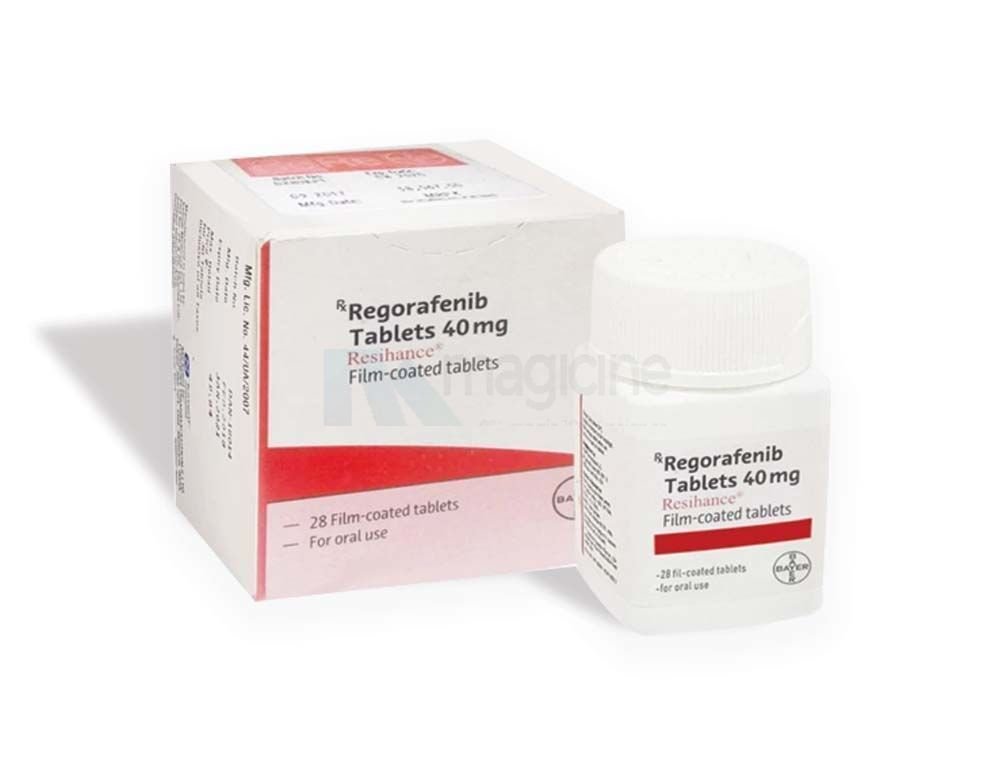Marketed By
Aprazer Healthcare Pvt Ltd
Pack of
10 tablets
Salt Composition
Capecitabine
Storage
Keep in cold place
₹500₹711.11
29.69% Off
Inclusive of all taxes
1

Capekast 500mg Tablet
Delivering To: —
All Substitutes
Overview
Capekast 500mg Tablet is a formulation of a prescription medicine known as Capecitabine. It is prescribed for the treatment of patients suffering from breast cancer, gastric cancer, and colorectal cancer. In patients with breast cancer, this regimen may be given in combination with docetaxel. It is a chemotherapy drug that belongs to the class of antimetabolites.
Indication
Colorectal cancer, Breast cancer
Description
Capecitabine is an antineoplastic fluoropyrimidine carbamate that is used to treat metastatic breast cancer and colon cancer. It's a systemic prodrug given orally with minimal pharmacologic activity until it's transformed into fluorouracil by enzymes in higher doses in various cancers. Fluorouracil then metabolized 5-fluoro-2′-deoxyuridine 5′-monophosphate (FdUMP) and 5-fluorouridine triphosphate in normal and malignant cells (FUTP).
Side Effects
The following are the most common adverse effects of Capekast (Capecitabine) tablets. Contact your doctor immediately if these side effects become unbearable.
Fatigue
Sensitivity of the skin to sunlight
Change in taste
Pale skin
Lightheadedness
Irregular heartbeat
Joint pain
Skin rash
Vomiting
Weakness
Nausea
Mouth sore
Swelling
Headache
Diarrhea
Abdominal pain
How To Use
Take Capekast 500mg tablets orally with a glass of water as per the prescription by your oncologist. Do not break or cut the regimen.
Overdose on Capekast tablets can cause severe effects. If you feel sick after taking the regimen or overdose intentionally, contact your oncologist.
Safety Advice

Alcohol
unsafe
It is advisable not to consume alcohol while taking this medicine.

Pregnancy
consult your doctor
Do not take Capekast 500mg Tablet without consulting the doctor, in case of pregnancy.

Breast Feeding
consult your doctor
Without a doctor's consultation, do not take this medicine if you're breastfeeding.

Driving
danger
It is advisable not to drive or operate heavy machinery, you may feel dizzy as one of the side effects of the medicine.

Kidney
caution
Do not consume Capekast 500mg Tablet without a doctor's consultation in case of kidney problems.

Liver
caution
Share your medical history with the doctor in case of liver disease before taking this medicine.
Missed Doses
If you miss a dose of Capekast 500mg tablets, kindly call your oncologist and ask the ways of coping with this. Do not cope by doubling the next dose.
Quick Tips
FAQs
Capekast is prescribed for the treatment of patients suffering from breast cancer, gastric cancer, and colorectal cancer.
The common side effects of Capekast tablets are fatigue, fever, joint pain, skin rash, seizures, vomiting, weight loss, allergy, blood clots, etc.
If you miss a dose of Capekast 500mg tablets, kindly call your oncologist and ask the ways of coping with this. Do not cope by doubling the next dose.
Overdose on Capekast tablets can cause severe effects. If you feel sick after taking the regimen or overdose intentionally, contact your oncologist.
This medicine may decrease your ability to drive, affect your vision, or make you feel sleepy. Do not drive if any symptoms occur.
Ratings And Reviews
4.50/5
4 Ratings
5 Star
50.00%
4 Star
50.00%
3 Star
0.00%
2 Star
0.00%
1 Star
0.00%
8 months ago
a year ago
View All Reviews
Related Products
MARKETER DETAILS
Aprazer Healthcare Pvt Ltd
DISCLAIMER
The contents of this website are for informative purposes only. They are not deliberated to be an alternative to any professional medical prescription and treatment. Seek the advice of a qualified health provider for questions regarding the medical condition. Do not ignore any professional medical advice because of something you have read on this website. This website offers links to other websites, thereby enabling you to go to the other website directly. Therefore, Magicine Pharma isn't responsible for the content of the links in the website or links in the linked websites. The links are provided to assist the visitors and are not approved by any professional health provider.











